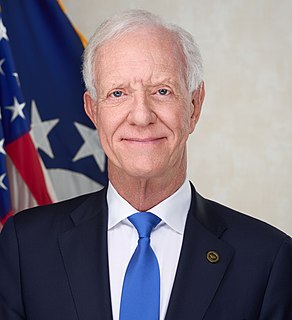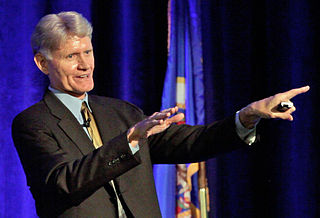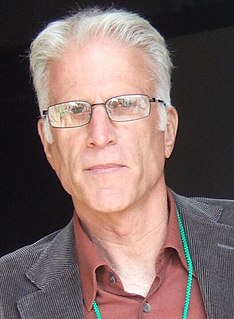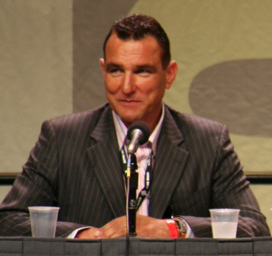Top 1200 Managing Change Quotes & Sayings
Explore popular Managing Change quotes.
Last updated on April 14, 2025.
No one in his right mind would walk into the cockpit of an airplane and try to fly it, or into an operating theater and open a belly. And yet they think nothing of managing their retirement assets. I've done all three, and I'm here to tell you that managing money is, in its most critical elements even more demanding than the first two.
Managing risk is a key variable, frankly, all aspects of life, business is just one of them, and one of the things that most people do in terms of managing risk, that's actually bad thinking, is they think they can manage risk to zero. Everything has some risk to it. You know, you drive your car down the street, a drunk driver may hit you. So what you're doing is you're actually trying to get to an acceptable level of risk.
Two years gives you enough time to grow and to change, and to, you know, change your priorities. Change where you live, change your hair, change what you believe in, change who you hang out with, what’s influencing you, what’s inspiring you. And in the process of all of those changes in the last two years, my music changed.
The art of managing and leading comes down to a simple thing. Determining and facing reality about people, situations, products, and then acting decisively and quickly on that reality. Think how many times we have procrastinated, hoped it would get better. Most of the mistakes you've made have been through not being willing to face into it, straight in the mirror that reality you find, then taking action on it. That's all managing is, defining and acting. Not hoping, not waiting fro the next plan. Not rethinking it. Getting on with it. Doing it. Defining and doing it.
It's good to be aware that a certain amount of fear is going to accompany every change in your life - a change for the worse or a change for the better. Knowing this can stop you from moving into fear about Change Itself. If you start fearing change generically you could wind up shrinking from ever making any kind of change at all for the rest of your day - even a change that obviously should be made for your own good.
I think the mental preparation isn't something that you can work on in one large sum. It has to be a collective collaboration of doing little things for your mental state constantly throughout the prep and managing your life outside the Octagon, managing your life in transit to the Octagon, managing your life once you get to training.
Baseball is a simple game. If you have good players, and you keep them in the right frame of mind, the manager is a success. The players make the manager. It's never the other way. Managing is not running, hitting, or stealing. Managing is getting your players to put out one hundred percent year after year. A player does not have to like a manager and he does not have to respect a manager. All he has to do is obey the rules. Talent is one thing. Being able to go from spring to October is another. You just got caught in a position where you have no position.
You see, I know change
I see change
I embody change
All we do is change
Yeah, I know change
We are born to change
We sometimes regard it as a metaphor
That reflects the way things ought to be
In fact change takes time
It exceeds expectations
It requires both now and then
See, although the players change
The song remains the same
And the truth is...
You gotta have the balls to change
I've considered myself a writer since I was 7 years old, but I've done a lot of jobs along the way. I enjoyed waiting tables and tending bar during college, especially when it got busy, so I might like managing a big restaurant. In fact, I might like managing many kinds of businesses or organizations.
I've never felt like I needed to change. I've always thought, 'If you want somebody different, pick somebody else.' But sure, criticism can sometimes still get to me. Some things are so malicious, they knock the wind out of you. It's like I'm managing to achieve all this success in spite of my affliction... Would you ever put [America's plus-size sweetheart] in the headline for a male star?
Think of managing change as an adventure. It tests your skills and abilities. It brings forth talent that may have been dormant. Change is also a training ground for leadership. When we think of leaders, we remember times of change, innovation, and conflict. Leadership is often about shaping a new way of life. To do that, you must advance change, take risks, and accept responsibility for making change happen.
Leadership: Here is the heart and soul of the matter. If you look to lead, invest at least 30% managing those with authority over you, and 15% managing your peers. Use the remainder to induce those you 'work for' to understand and practice...lead yourself, lead your supervisors, lead your peers, and free your people to do the same. All else is trivia.






















































